Special Report
Before and After Pictures of Devastating Wildfires Around the World
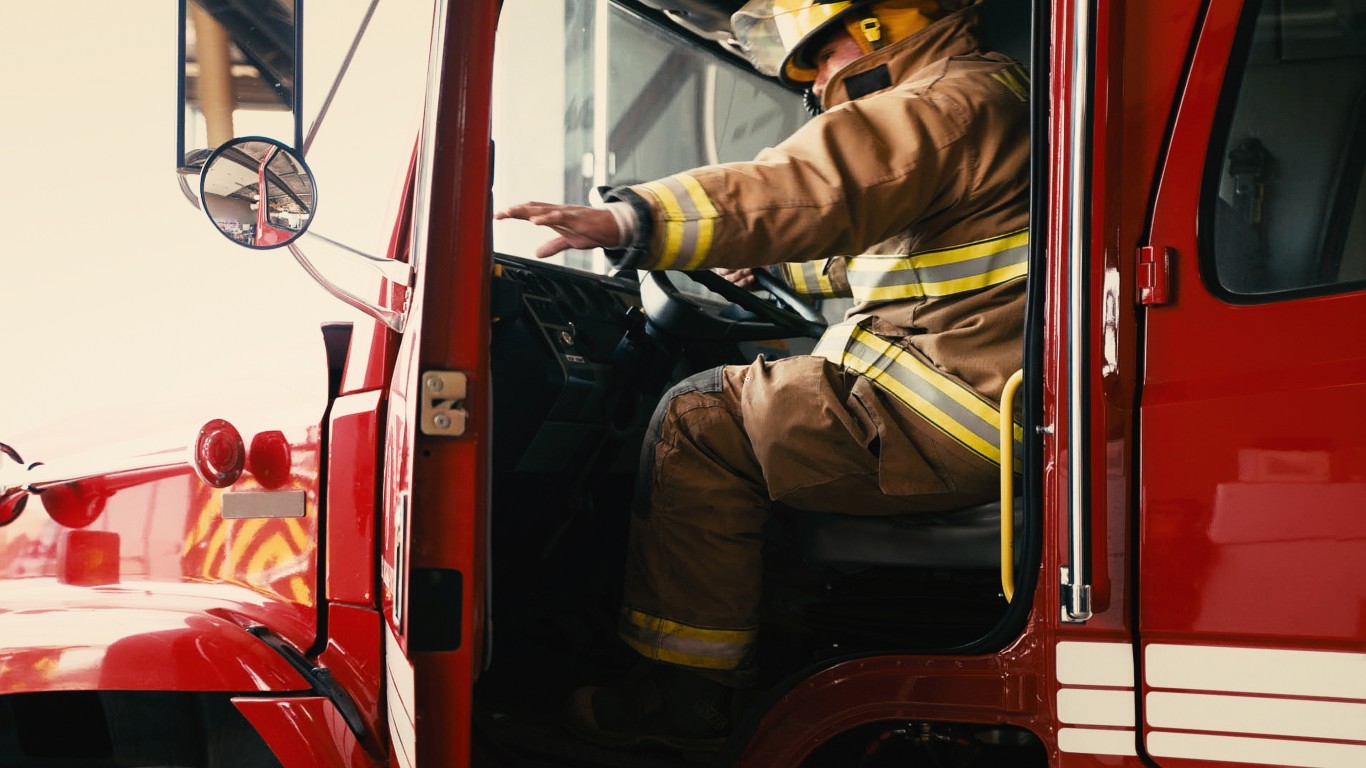
Published:

There’s always been fire in the world — ignited by lightning strikes, heat, or even lava flow. Human beings first learned how to control this mighty force of nature — how to start and stop fire and use it for their own purposes — as far back as a million years ago. This had a major impact on our evolutionary development, providing us with warmth and enabling us to cook our food (which increased its nutritional value and helped our brains grow larger).
The fact that we know how to control fire, of course, doesn’t mean that we always can control it. Lightning, heat, lava, and chemical reactions still set fires raging, as does simple human carelessness or even malice. Conflagrations in urban settings are usually extinguished fairly quickly, thanks to nearby fire departments and ready water supplies. Fires in the wild — including so-called brush fires and forest fires — are another story.
The Federal Emergency Management Agency (FEMA) defines a wildfire as “an unplanned fire that burns in a natural area such as a forest, grassland, or prairie” — though these blazes also often sweep through agricultural areas, residential neighborhoods, and even beach resorts (as with the fires in Greece this summer).
There are typically 100,000 wildfires a year just in the United States alone, and according to a 2015 study funded by the National Oceanic Atmospheric Administration (NOAA), the effects of climate change will probably greatly increase the number and magnitude of these fires over the next few decades.
Climate isn’t the main problem, though, nor are natural phenomena. The overwhelming majority of wildfires — some 90% — are caused by human beings. Discarded cigarettes and matches, unattended campfires, fireworks, trash burning, even sparks from a wheel rim being dragged across asphalt — and of course arson — are among the main causes of wildfires.
Feeding on dry scrub, timber, and other combustibles and whipped up by the wind, wildfires can spread with frightening speed. They are calamitous events, destroying homes and other buildings, killing animals and vegetation and people, polluting the environment, and often stripping nutrients from the soil so that regeneration is impossible. They can also, though, have a kind of hellish beauty as they blaze.
With that in mind, 24/7 Wall St. has gathered before and after photographs of 14 of the world’s worst wildfires — judged by number of fatalities or Area burned or both — of the 21st century, showing what the affected landscapes looked like before fire struck and then what they looked like burning, or in the blaze’s aftermath.
Click here for before and after pictures of devastating wildfires around the world.
To assemble a list of the world’s worst wildfires over the past 30 years, 24/7 Wall St. consulted websites of the World Resources Institute’s Global Forest Watch Fires, the National Fire Protection Association, the National Interagency Fire Center, and The Canadian Institute of Forestry’s Forestry Chronicle, as well as the Mother Nature Network, Worldatlas.com, Agence France-Presse (AFP), and “The Worst Wildfires of All Time” by Suzanne Garbe (Capstone Press).
In some cases, rather than individual blazes, these are wildfire complexes (two or more simultaneous neighboring fires) or larger series of fires.
Before

After
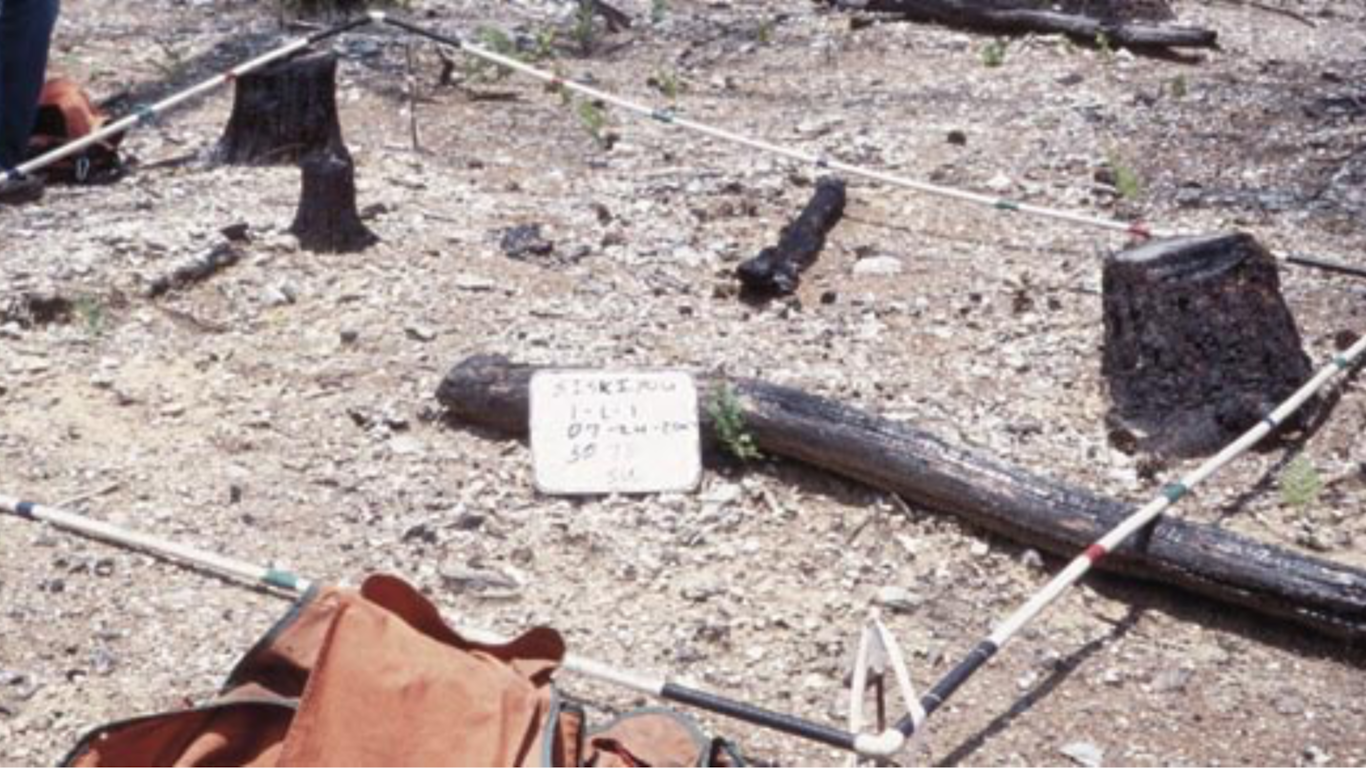
1. Biscuit Fire, Kalmiopsis Wilderness, OR
> Year: 2002
> Fatalities: 0
> Area burned: 499,960 acres
The Biscuit Fire was in fact a complex, a series of adjacent fires. The initial fire, which was ignited by lightning, was named after Biscuit Creek, in the midst of the area burned. One of the neighboring fires was called the Sour Biscuit Fire, referencing not only the creek but nearby Sourdough Gulch.
[in-text-ad]
Before
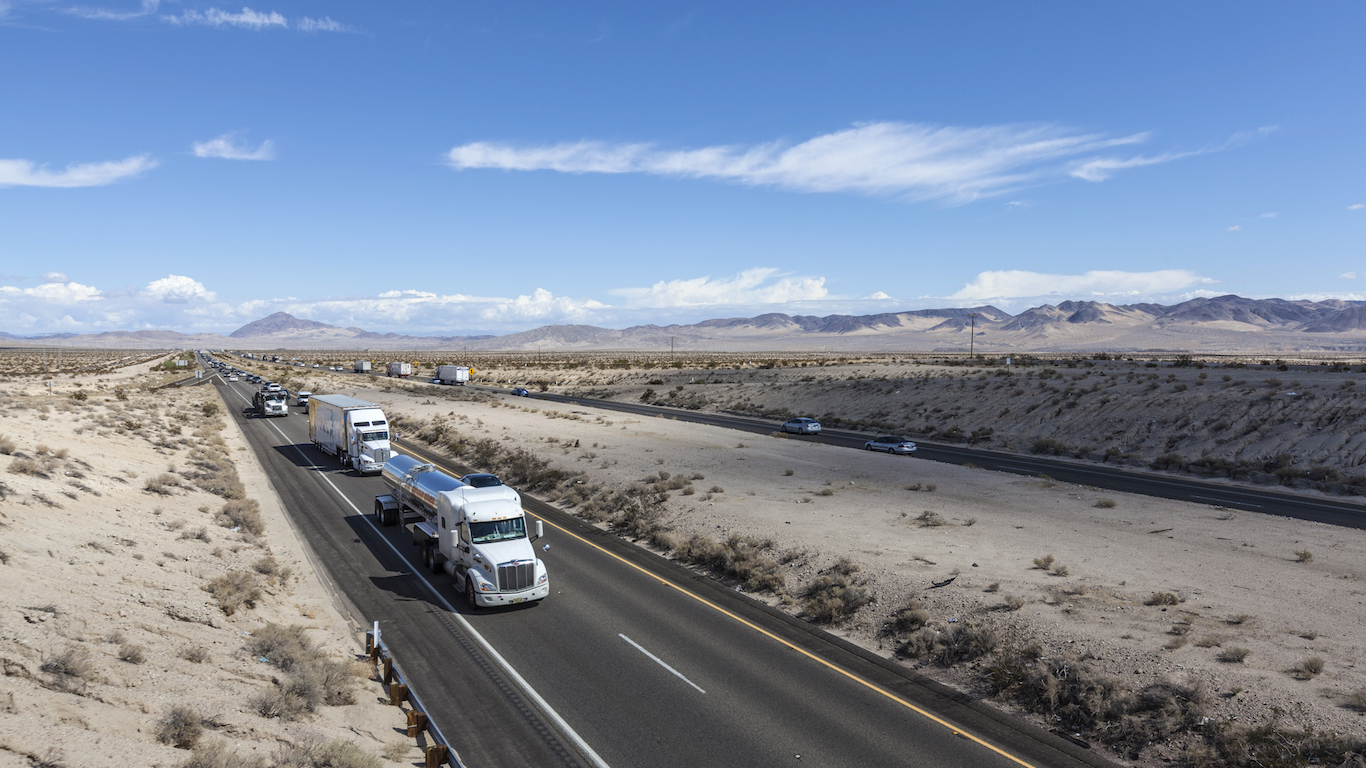
After

2. Cedar Fire, San Diego County, CA
> Year: 2003
> Fatalities: 8
> Area burned: 273,246 acres
All eight people who perished in this fire lived in one remove residential area, off a dirt road called Strange Way. The blaze was the result of a signal fire lit by a hunter who had gotten lost in the wilderness.
Before
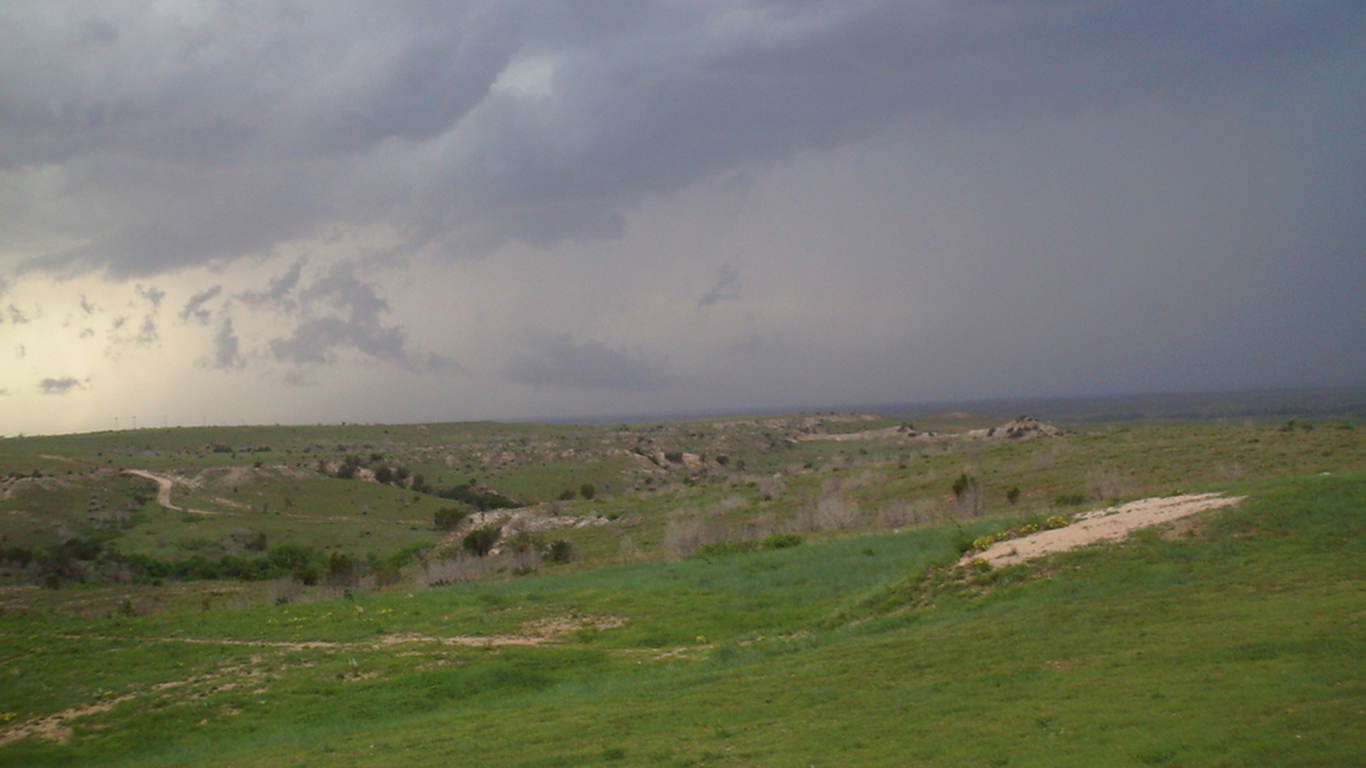
After
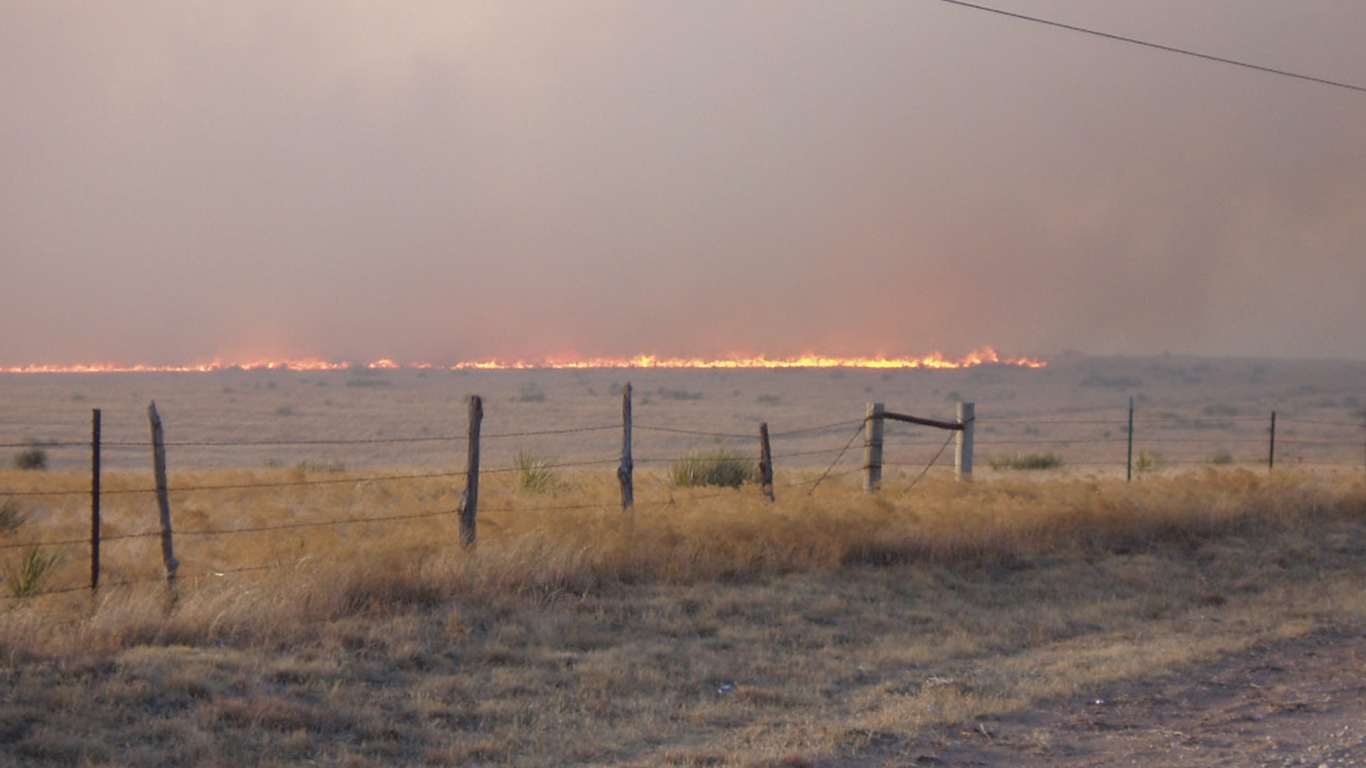
3. East Amarillo Complex Fires, Amarillo, TX
> Year: 2006
> Fatalities: 12
> Area burned: 907,245 acres
Burning nearly one million acres in the Texas Panhandle, this fire accounted for more than half of the total Area consumed by wildfires in 2006.
Before
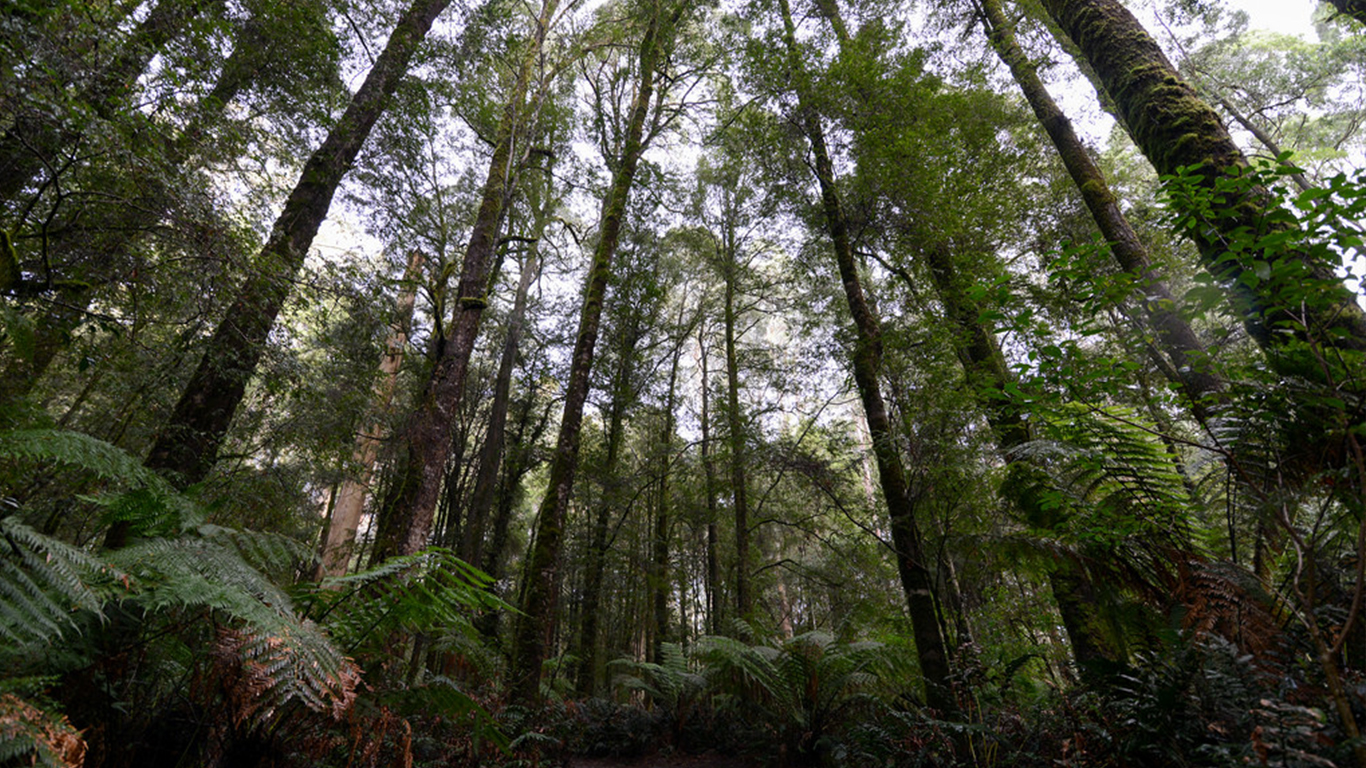
After
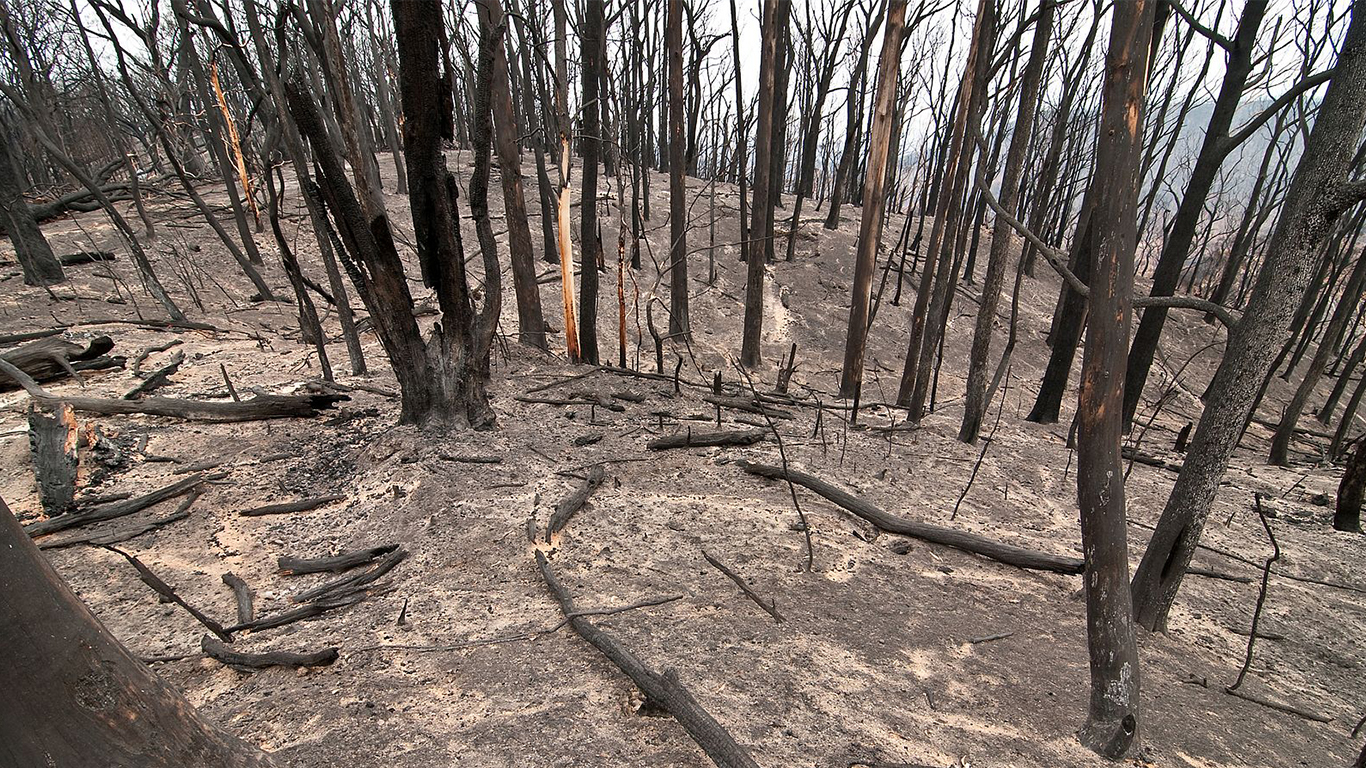
4. Black Saturday Bushfires, Victoria, Australia
> Year: 2009
> Fatalities: 173
> Area burned: 1,111,680 acres
Considered the most devastating wildfires in Australian history, these blazes ignited and spread in the middle of an extreme heatwave (temperatures reached 115ºF), in the midst of the worst drought ever recorded in the country. Gale-force winds fanned the flames, and five towns were completely destroyed.
[in-text-ad-2]
Before
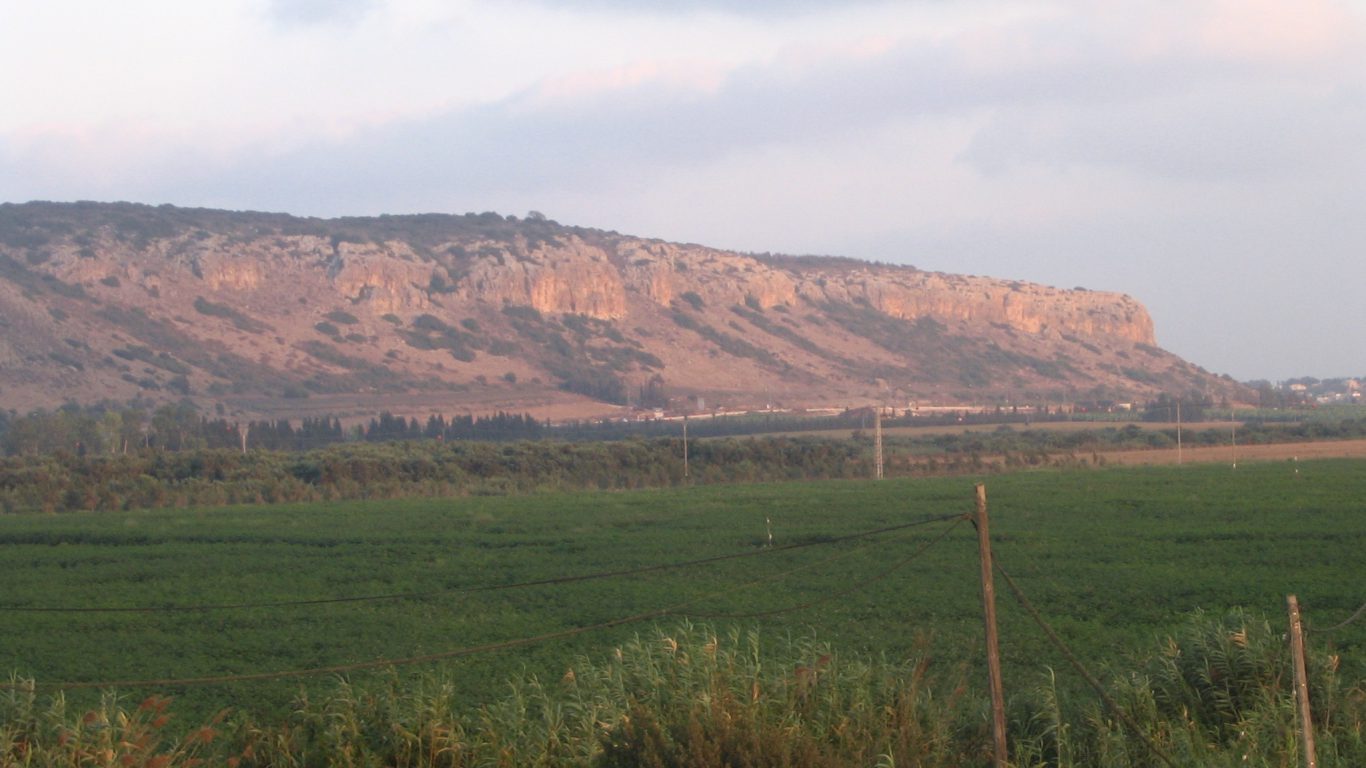
After
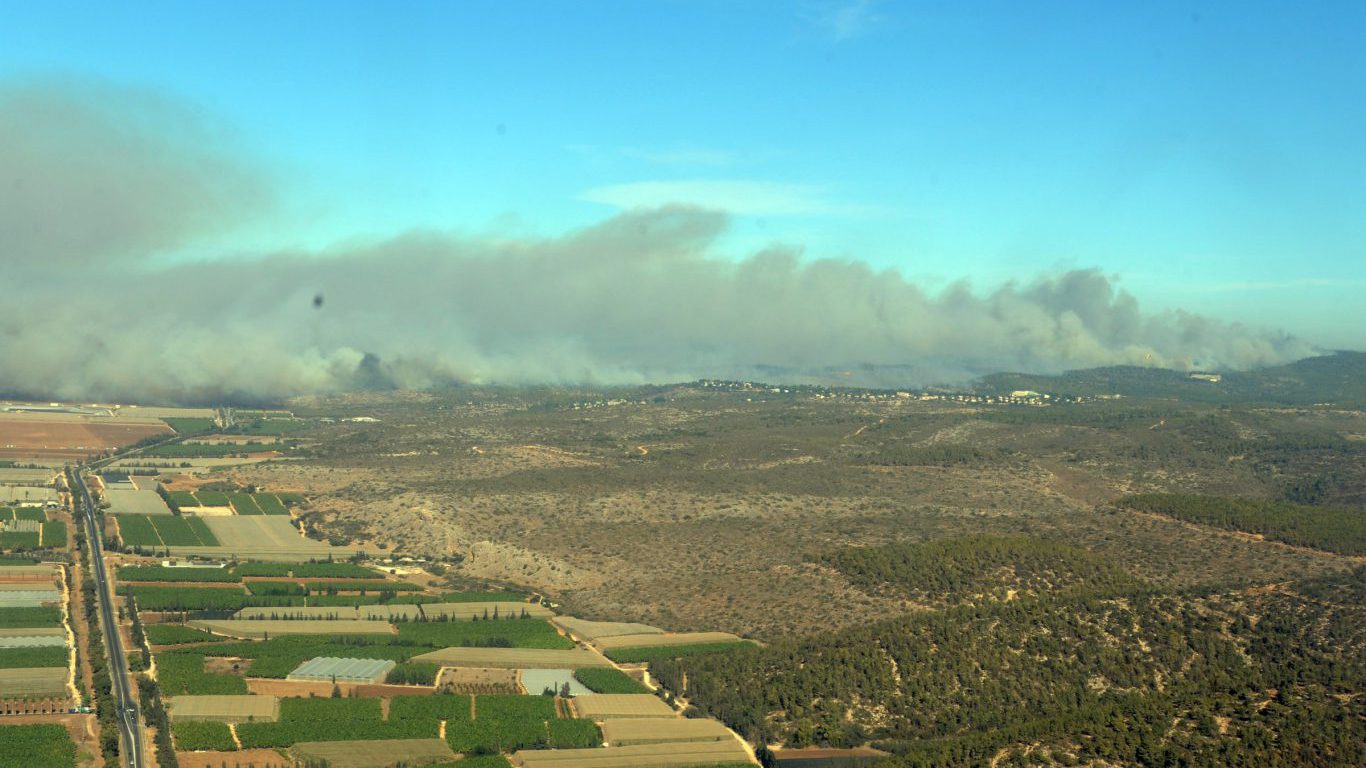
5. Carmel Forest Fire, Haifa, Israel
> Year: 2010
> Fatalities: 41
> Area burned: 12,000+ acres
Because Israel is sparsely forested, the country has only 1,400 firefighters, but volunteers from Turkey, Greece, Cyprus, Jordan, Egypt, and Great Britain rallied to help fight the blaze. Most of the fatalities were corrections officers whose bus was enveloped by fire as they were enroute to help evacuate a prison in front of the flames.
Before
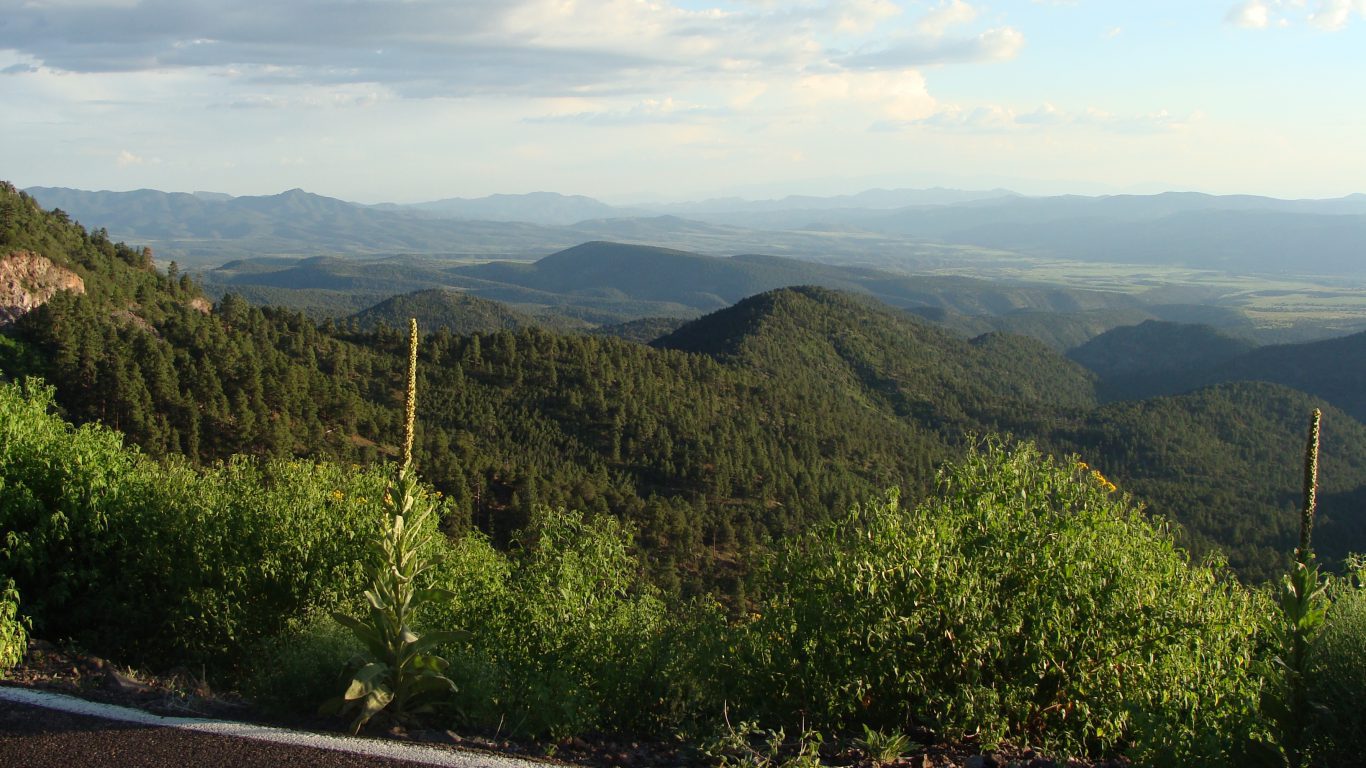
After
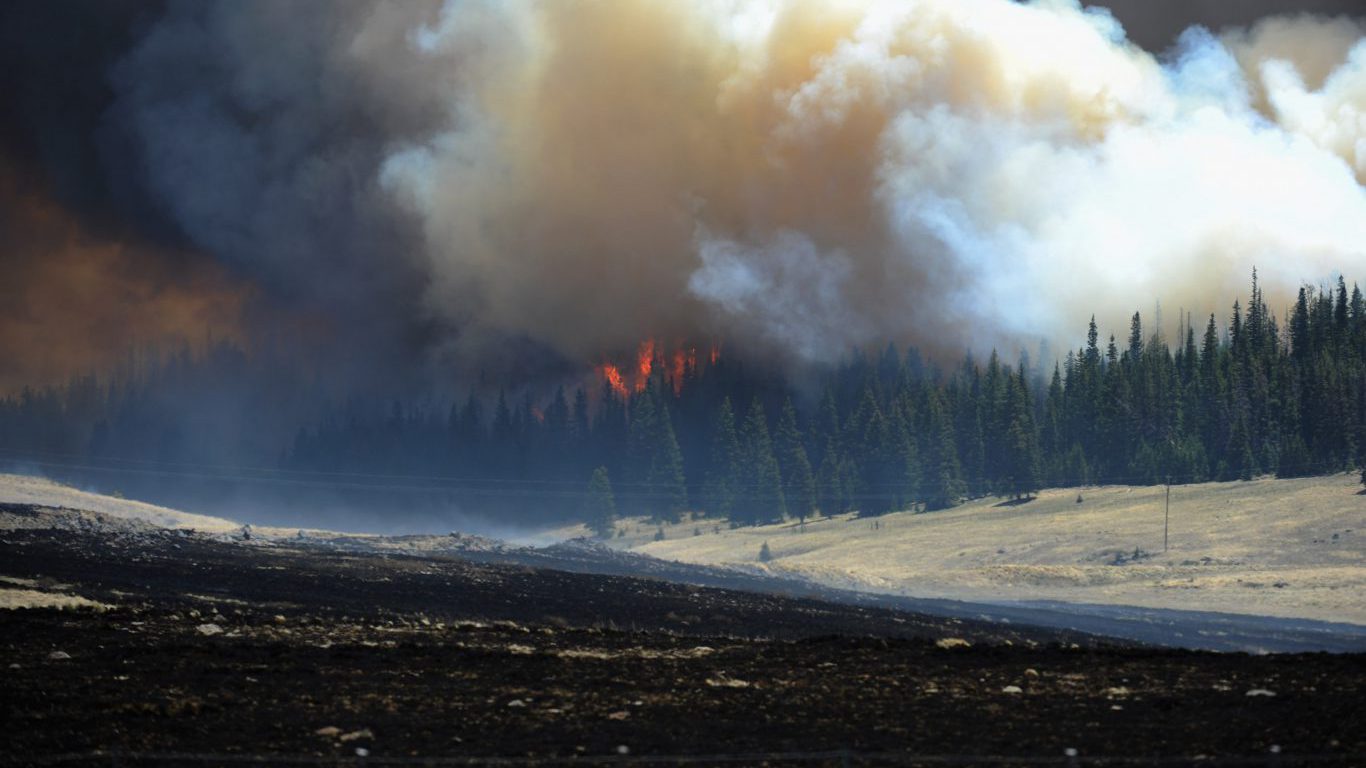
6. The Wallow Fire, Bear Wallow Wilderness and vicinity, AZ
> Year: 2011
> Fatalities: 0
> Area burned: 469,000 acres
This blaze consumed almost 550,000 acres in this wilderness area in eastern Arizona’s Apache-Sitgreaves National Forest and in portions of neighboring New Mexico. It was set off by an unattended campfire.
[in-text-ad]
Before
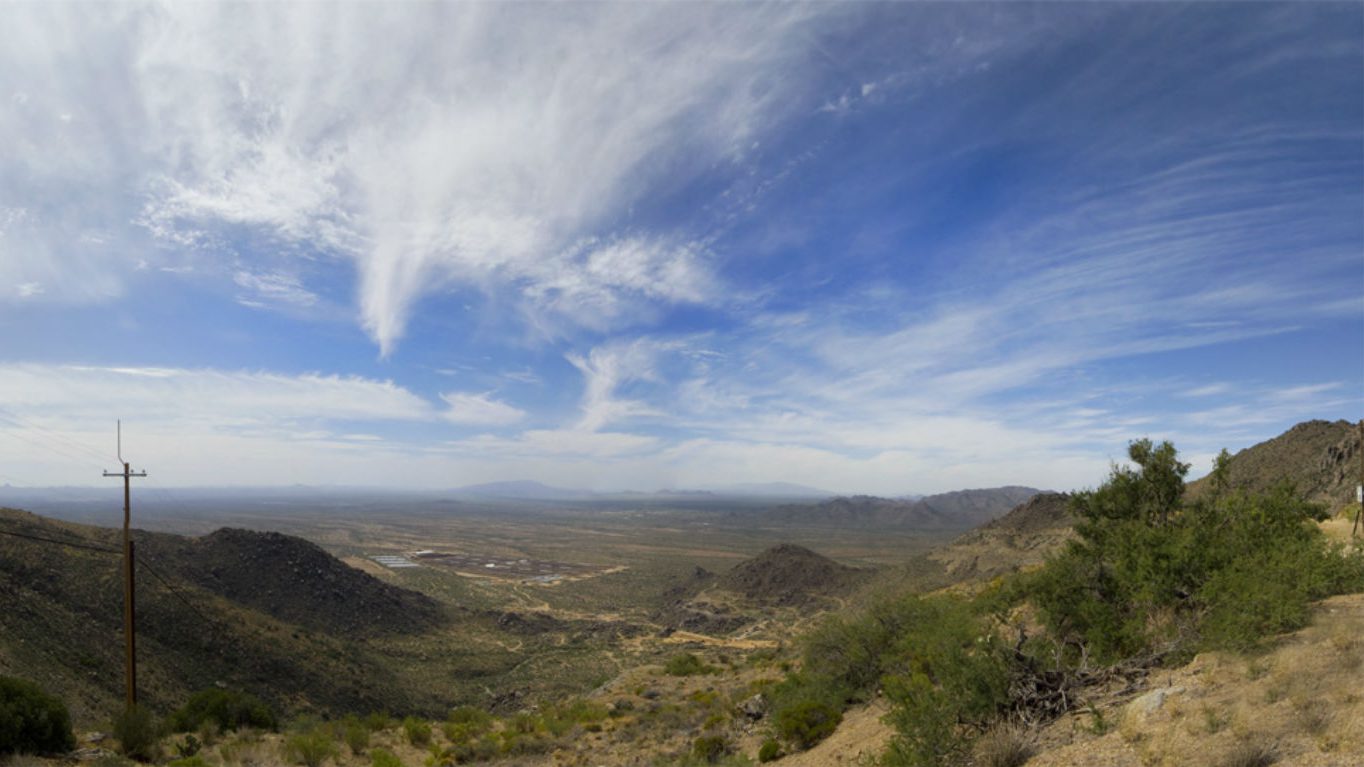
After
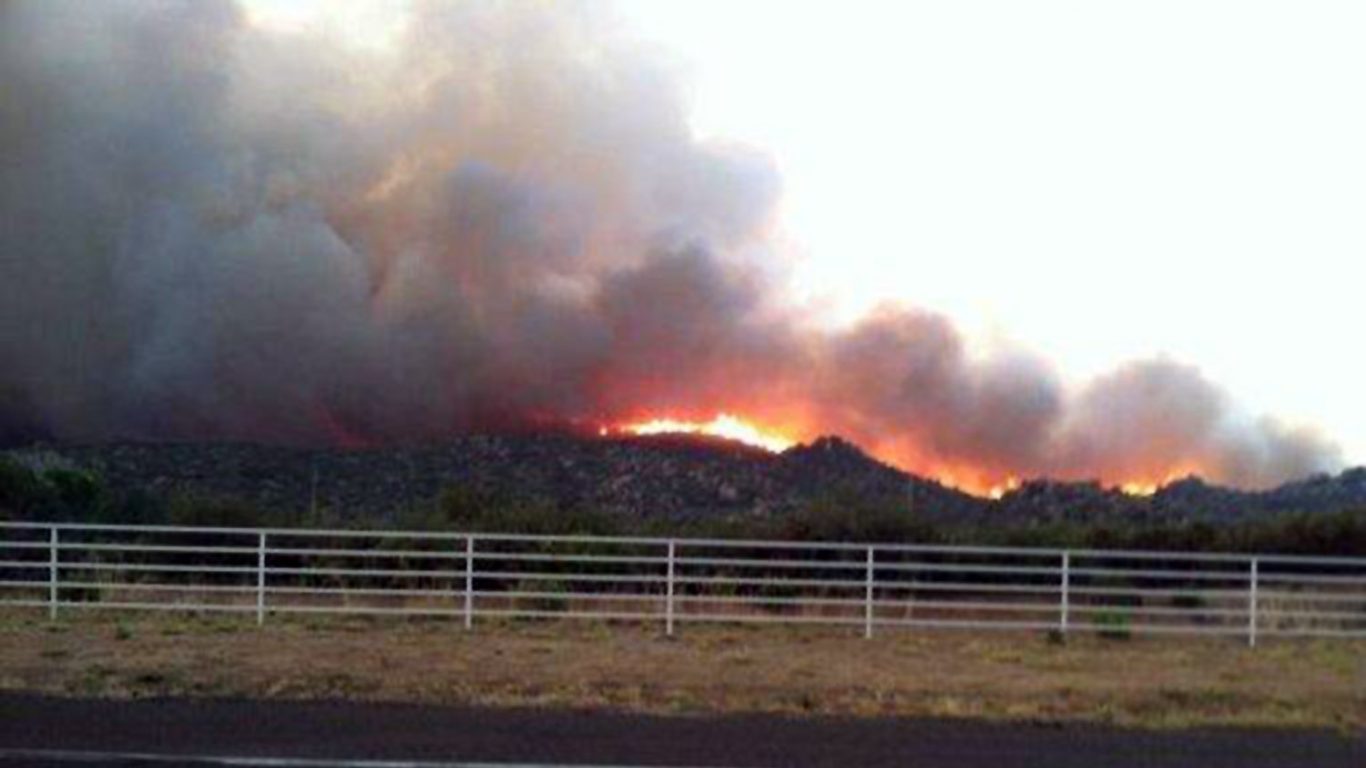
7. Yarnell Hill Fire, Yarnell, AZ
> Year: 2013
> Fatalities: 19
> Area burned: 8,400+ acres
An elite squad of 19 Arizona firefighters were killed in this blaze, making It the deadliest wildfire for firefighters since a California blaze in 1933. Radio communication problems and changing wind speeds and directions were blamed for the tragedy. A lightning strike caused the combustion.
Before
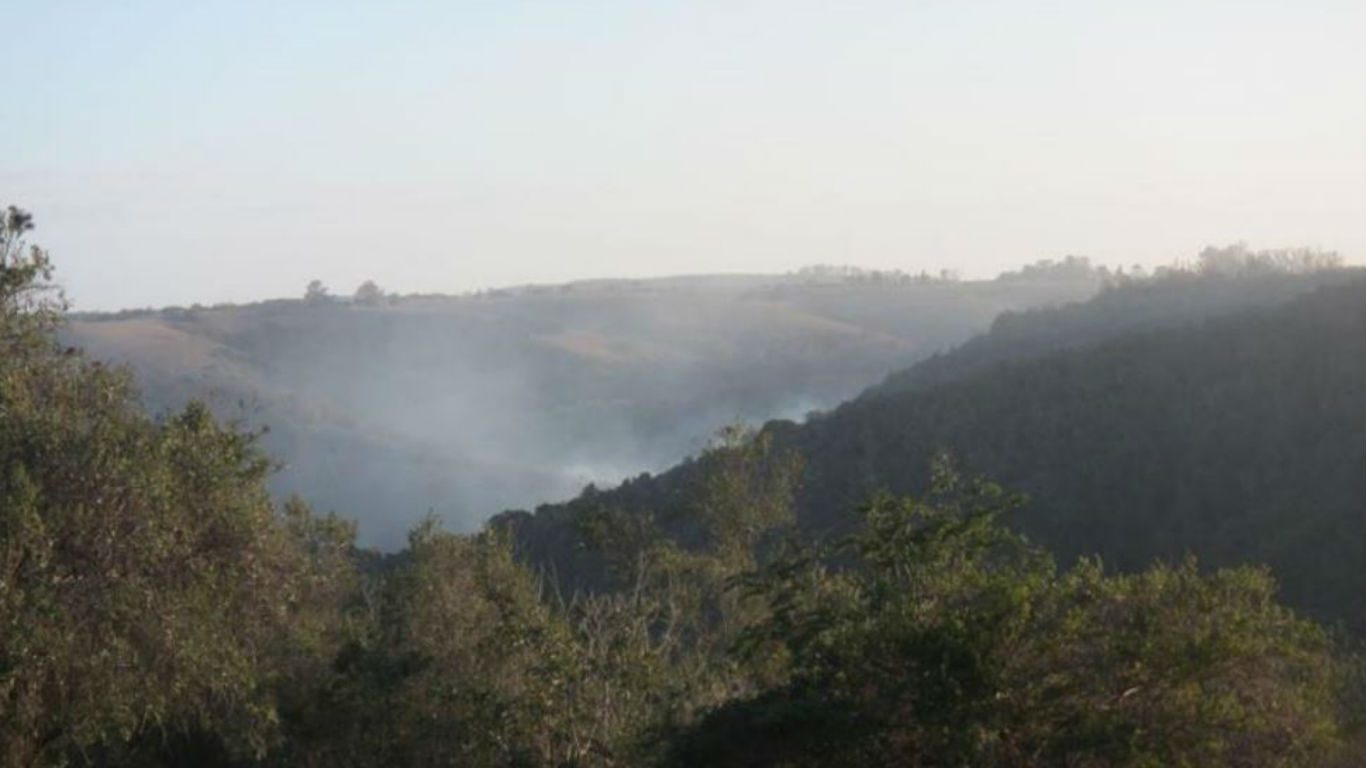
After
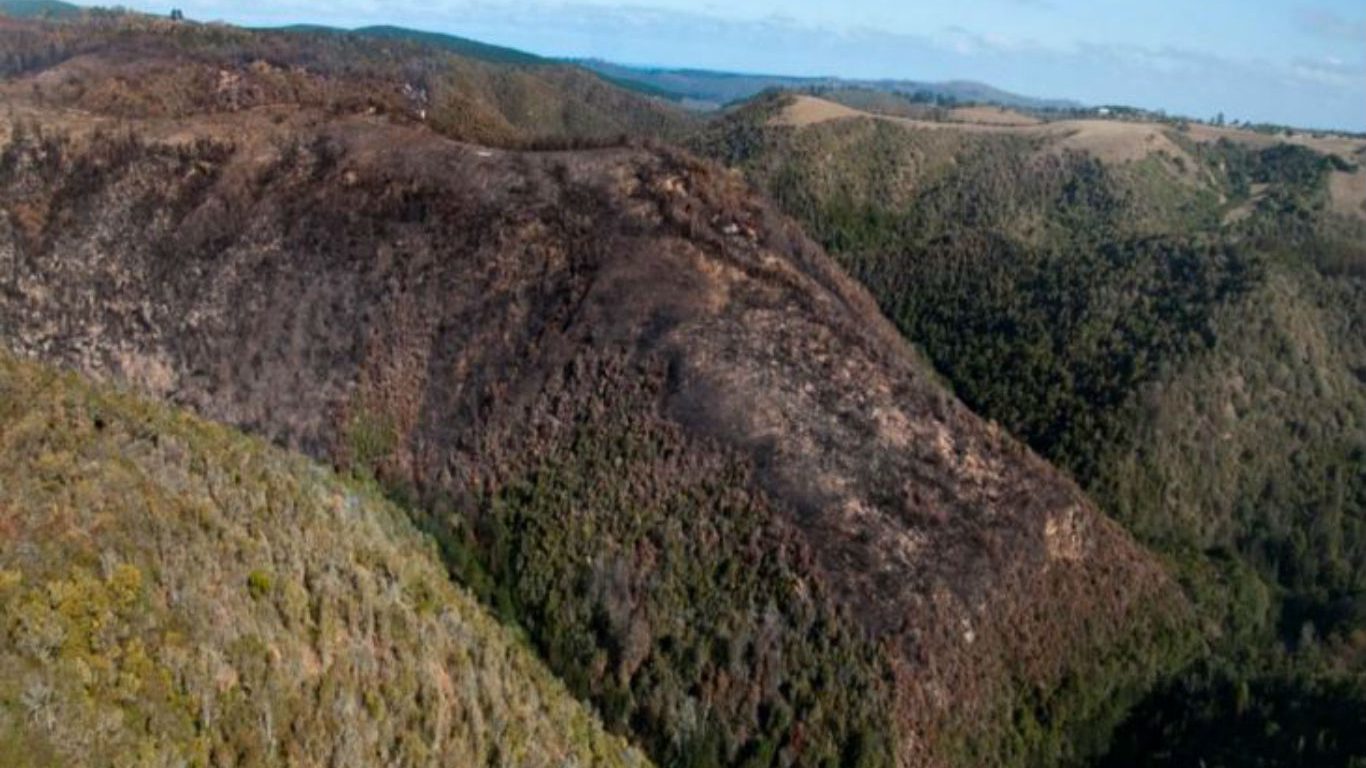
8. Knysna Fires, Knysna, Western Cape, South Africa
> Year: 2017
> Fatalities: 7
> Area burned: 24,710 acres
South Africa Forestry described this blaze as “probably the biggest fire disaster in South Africa in modern times.” The Knysna fire chief suggested that the fire began in a clearing on private land, with quick-burning pine cones providing fuel.
Before
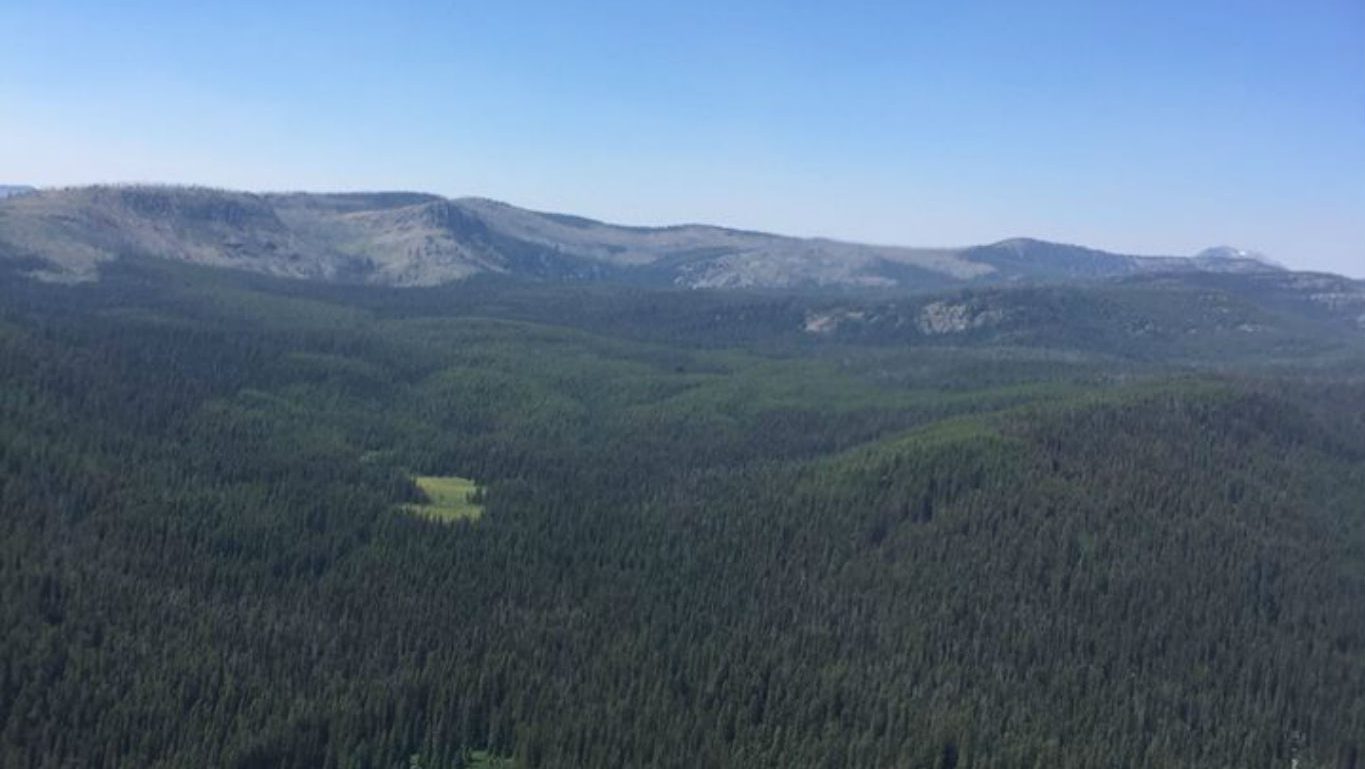
After
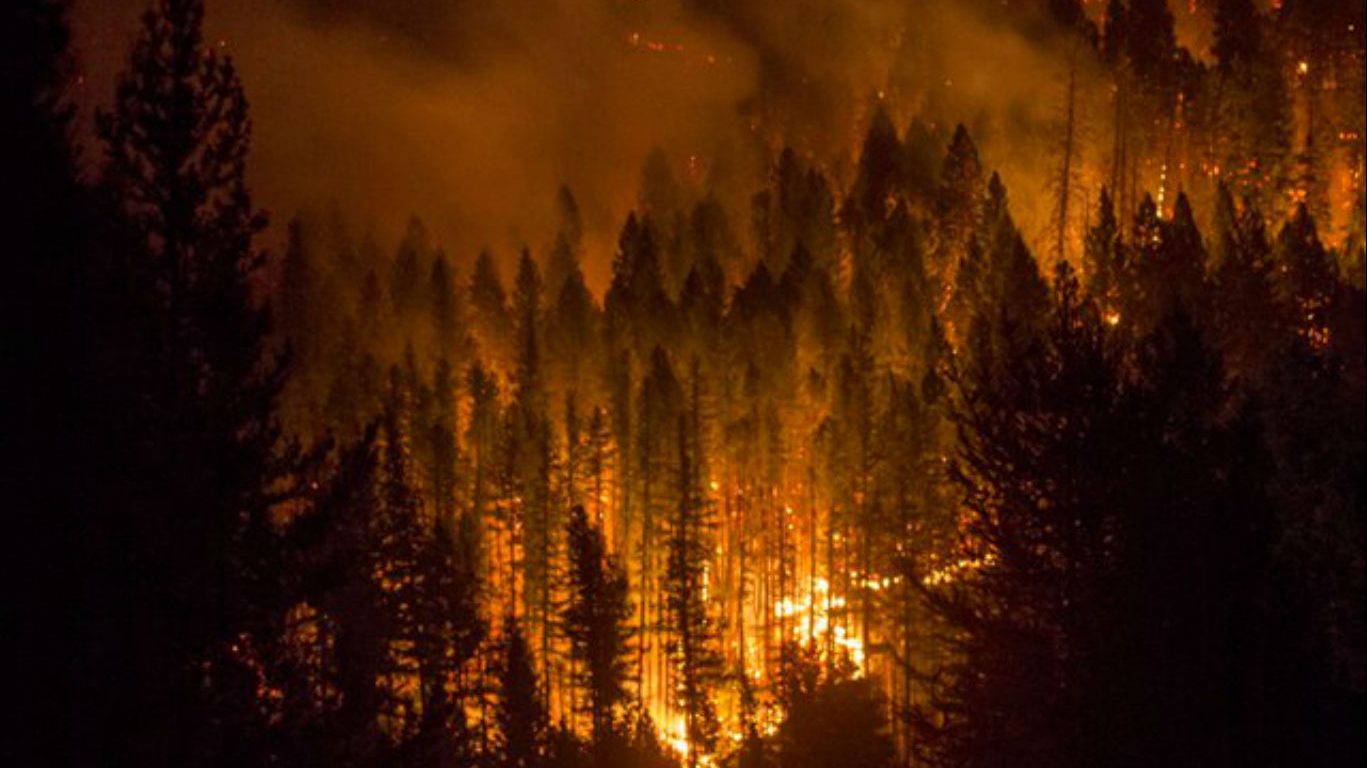
9. Lolo Peak Fire, Lolo National Forest, Montana
> Year: 2017
> Fatalities: 1
> Area burned: 53,902 acres
The sole fatality in this blaze near Missoula, which was started by a lightning strike, was a California firefighter, who was killed not by the flames but in a tree-felling accident. Firefighting efforts were temporarily suspended after reports of shots being fired in the affected area.
[in-text-ad-2]
Before
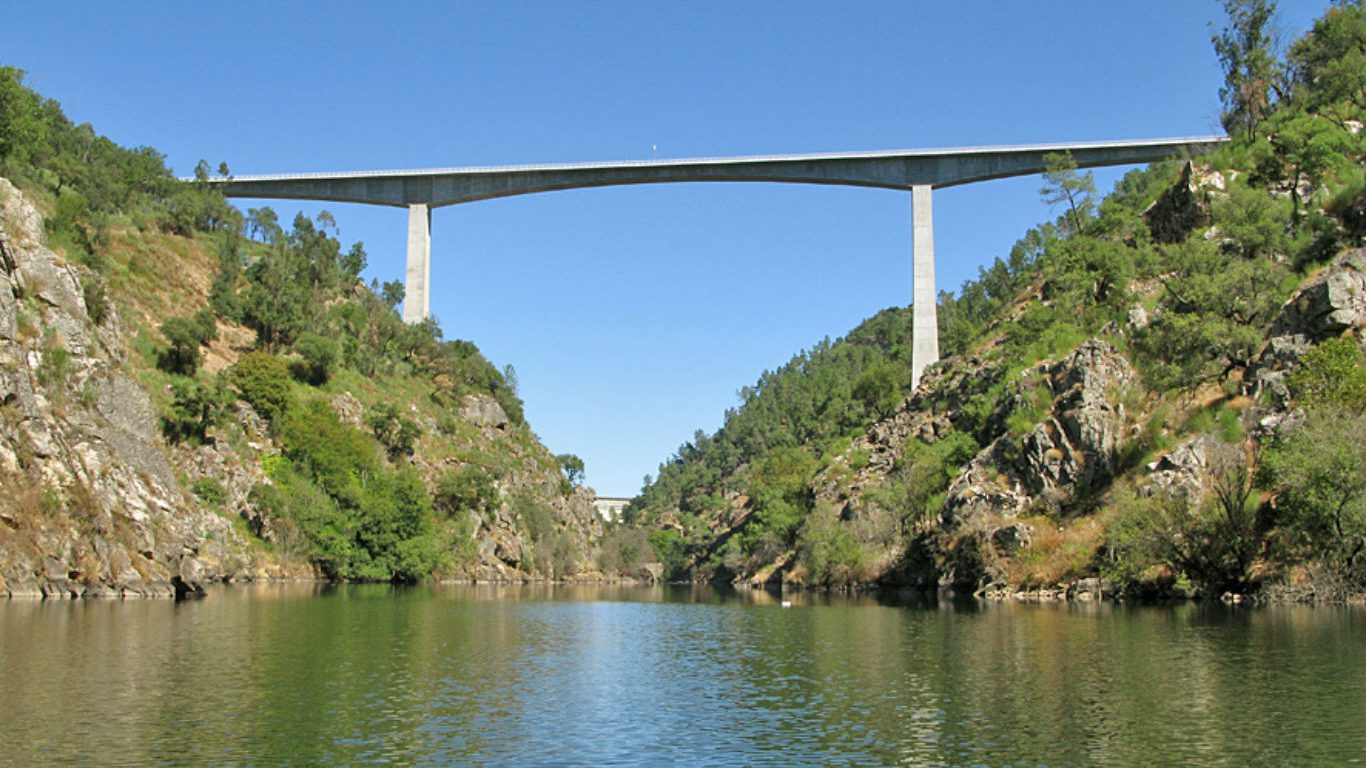
After
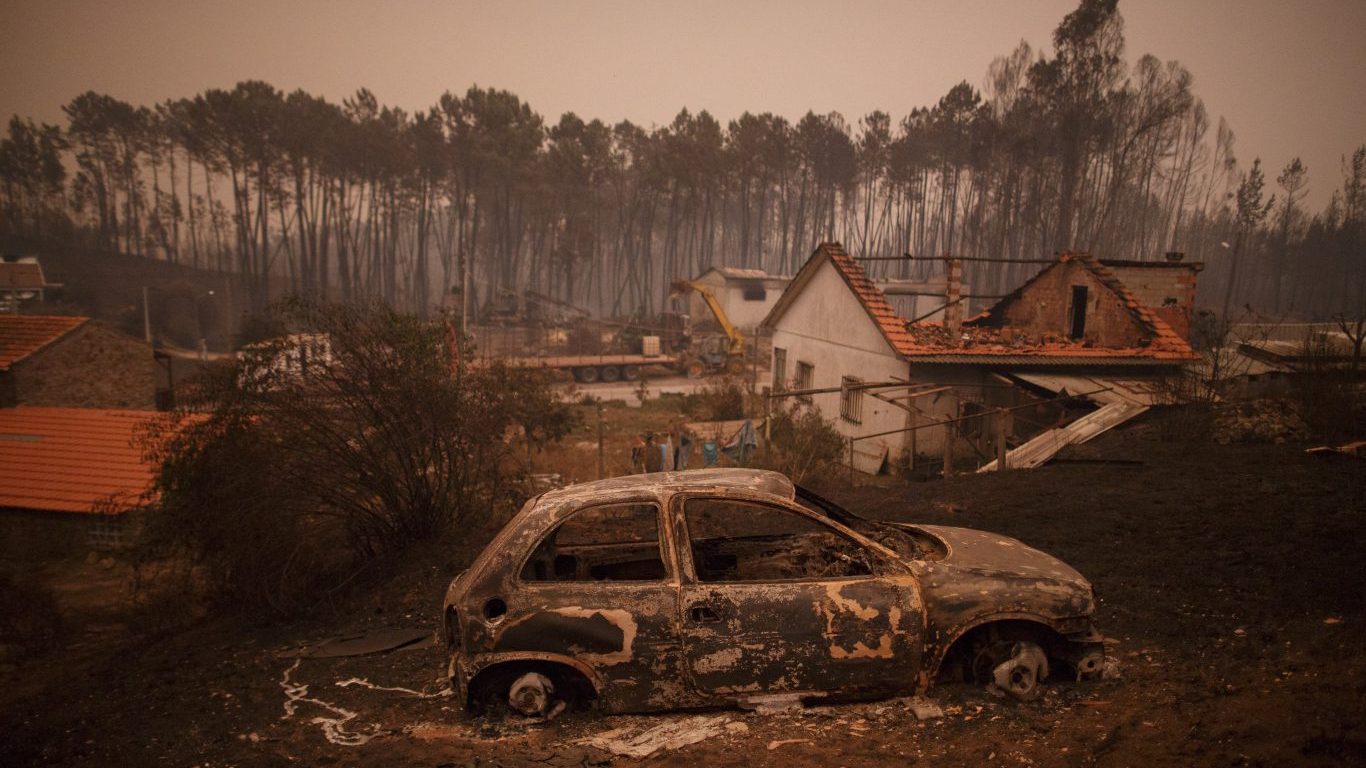
10. Pedrógão Grande Fire, Pedrógão Grande and vicinity, Portugal
> Year: 2017
> Fatalities: 64
> Area burned: 73,000 acres
About half the 64 victims from this blaze were killed in their cars, trapped on a road leading through a forest. A fire expert from Portugal’s University of Coimbra told reporters that the fire may have started simultaneously in several places, explaining why it spread so fast.
Before
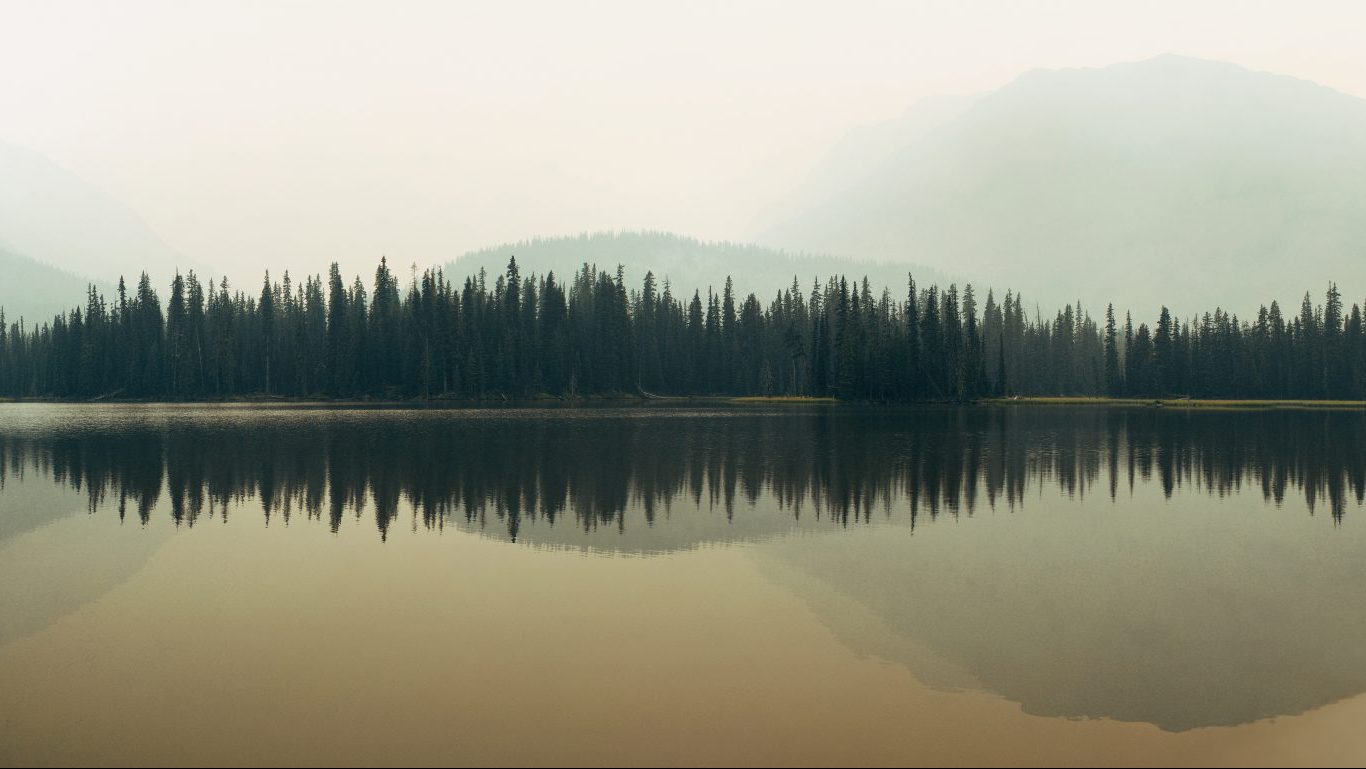
After
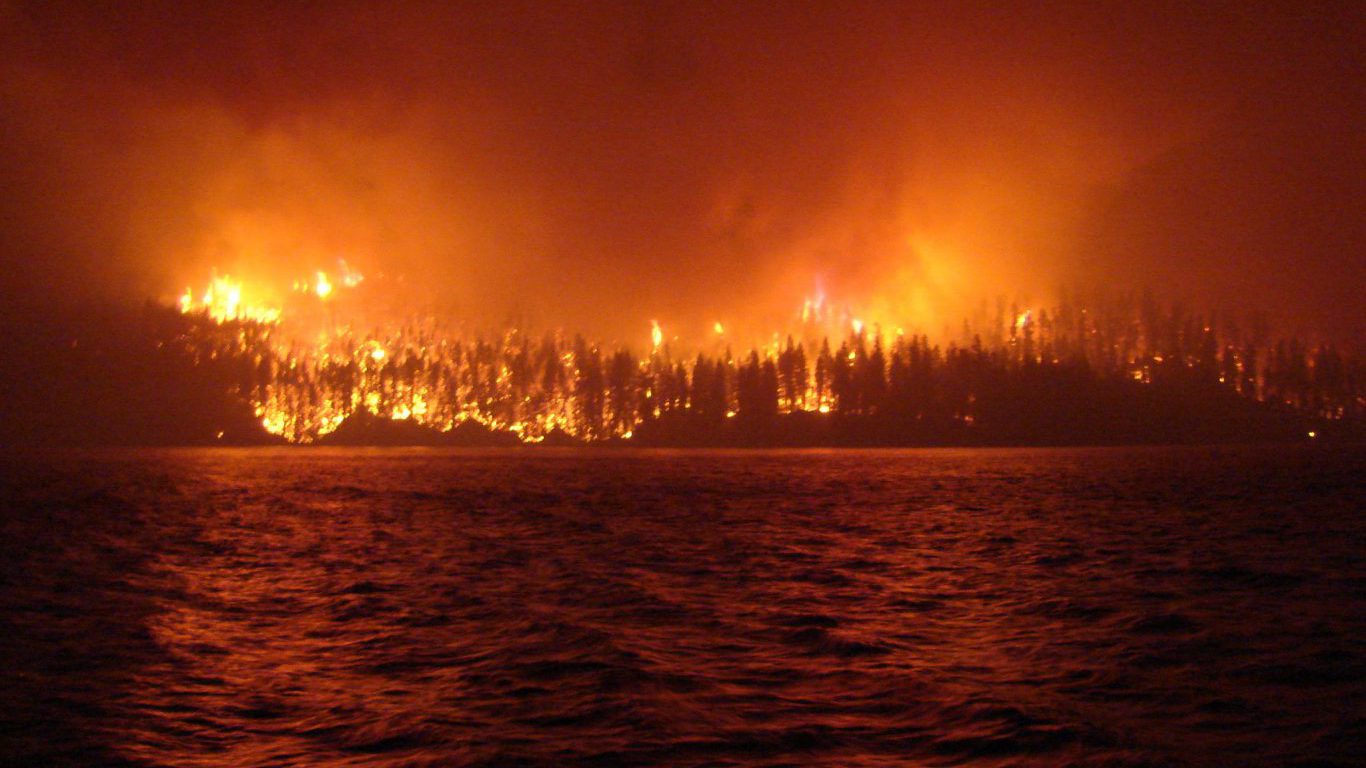
11. Plateau Fire, Chilcotin Plateau and vicinity, British Columbia, Canada
> Year: 2017
> Fatalities: 0
> Area burned: 1,289,020 acres
This conflagration, the result of 19 smaller fires merging, covered some 1,154,000 acres and stretched more than 80 miles end to end. Remarkably, there were no fatalities from the fire, though a small herd of wild horses was found burned to death.
[in-text-ad]
Before
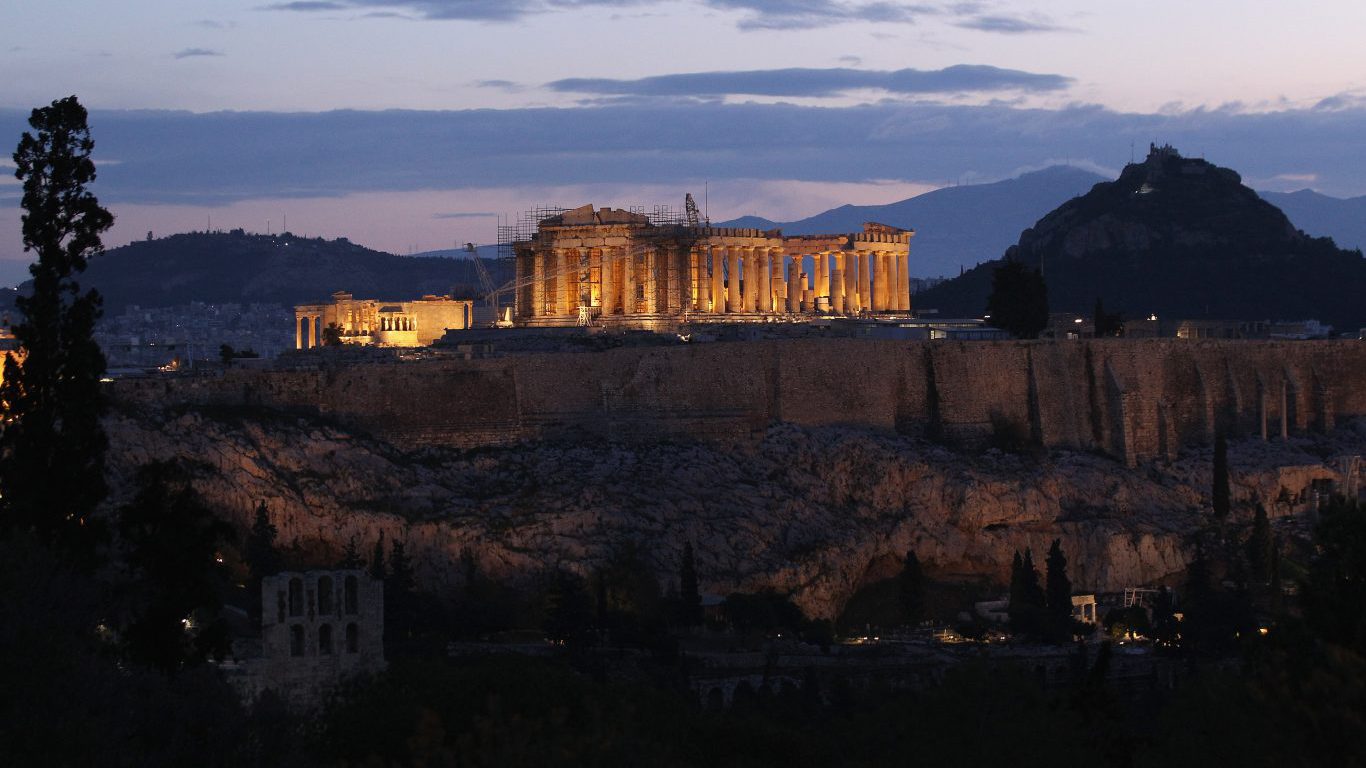
After
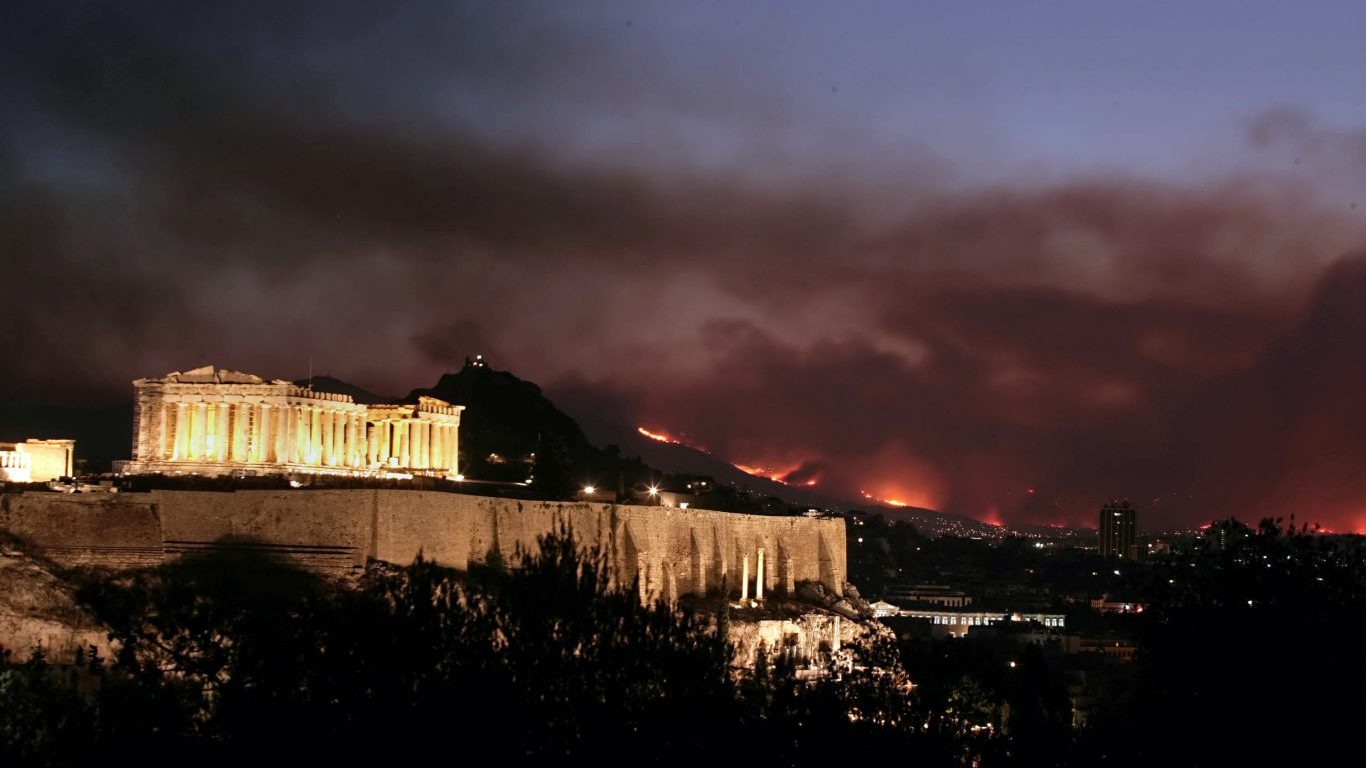
12. Athens and vicinity (Attica), Greece
> Year: 2018
> Fatalities: 91
> Area burned: 3,153 acres
Believed to have been started by arson, this is considered Europe’s deadliest wildfire in over a century. While many of the deceased died directly from the blaze, others drowned in the Mediterranean fleeing the flames.
Before
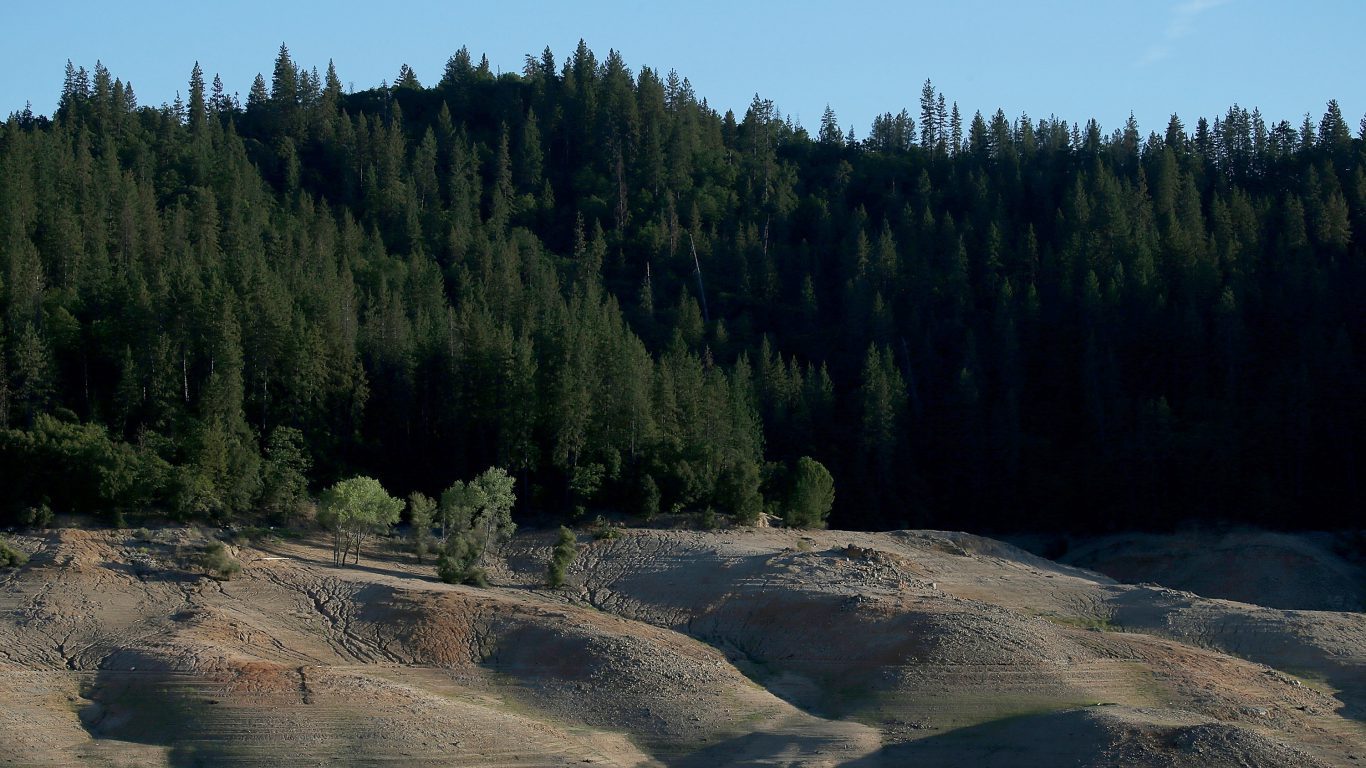
After
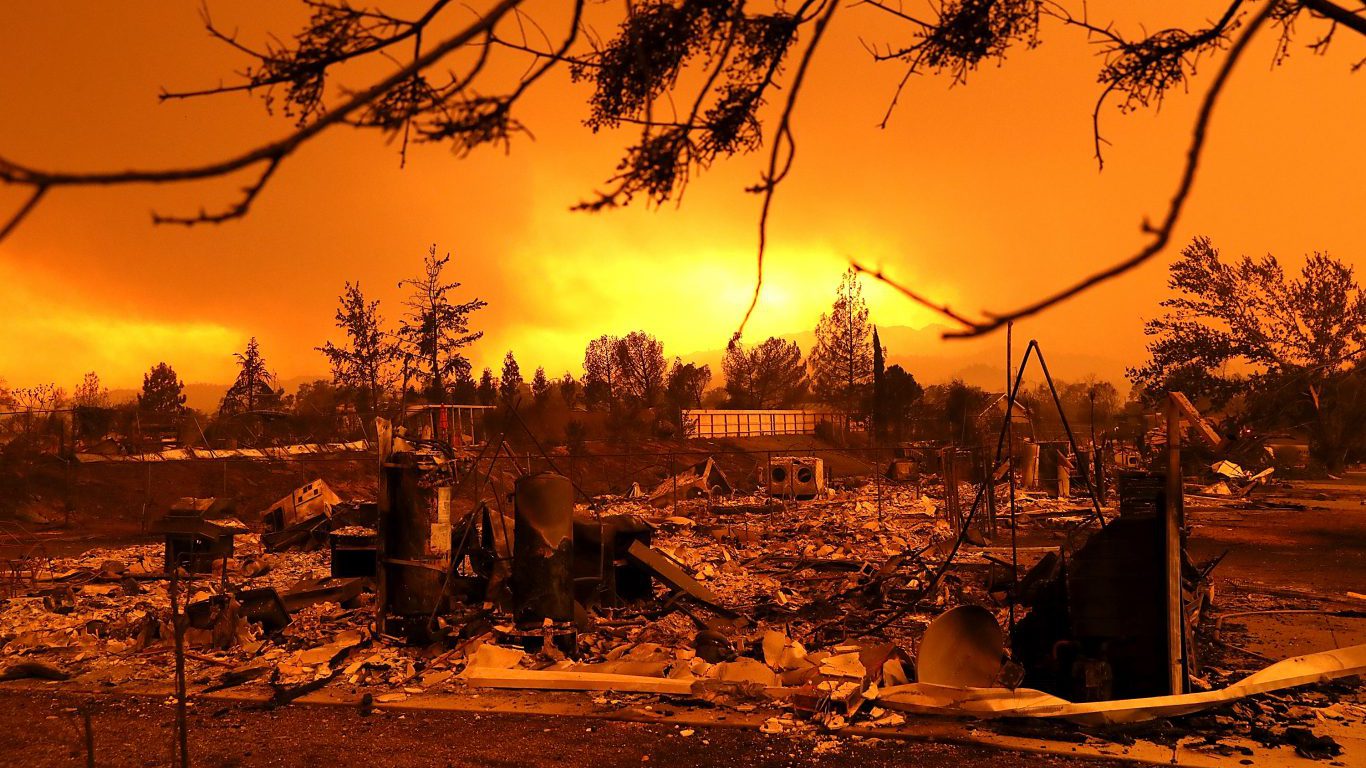
13. Carr Fire, Shasta County, CA
> Year: 2018
> Fatalities: 7
> Area burned: 229,651 acres
Ranked as the sixth most destructive wildfire in this wildfire-prone state’s history, the Carr fire was set off by sparks from the rim of a flat trailer tire, leaping into dry brush at the side of the road.
Before
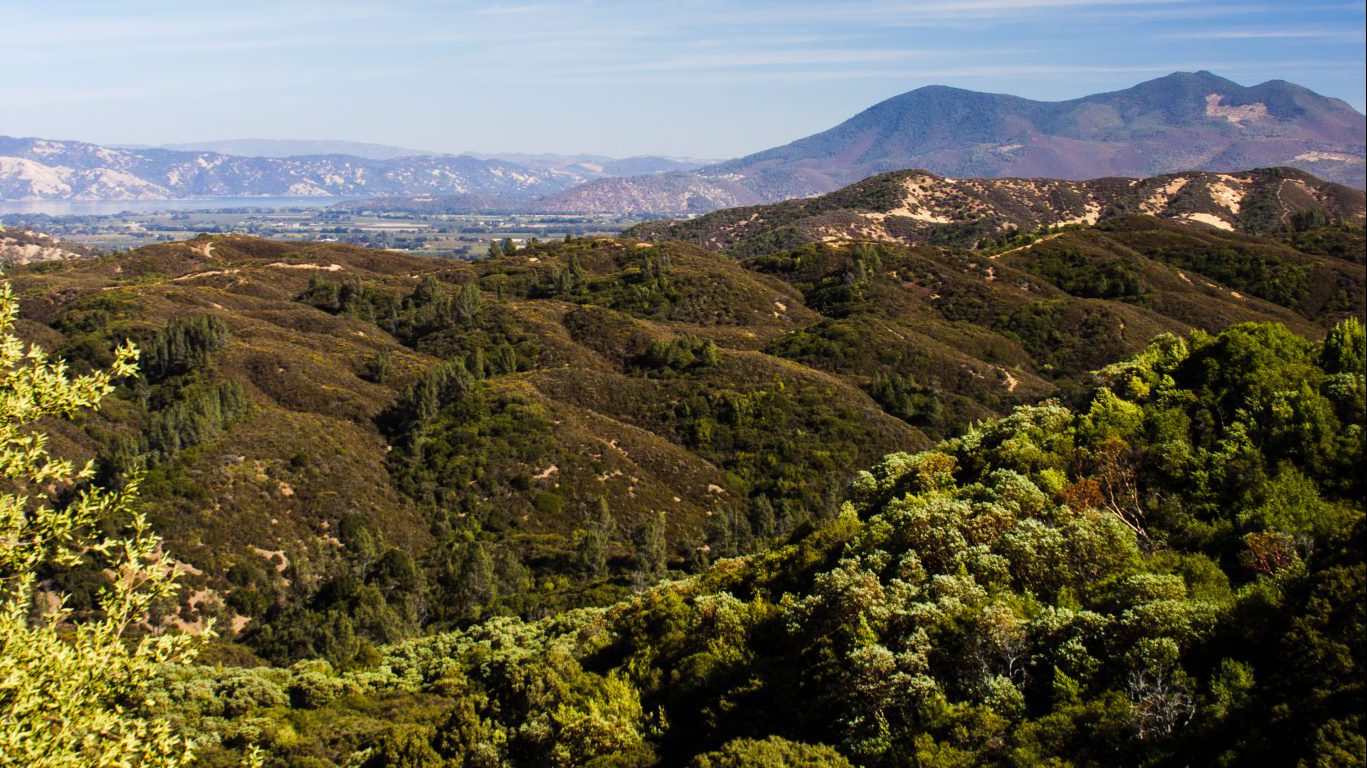
After
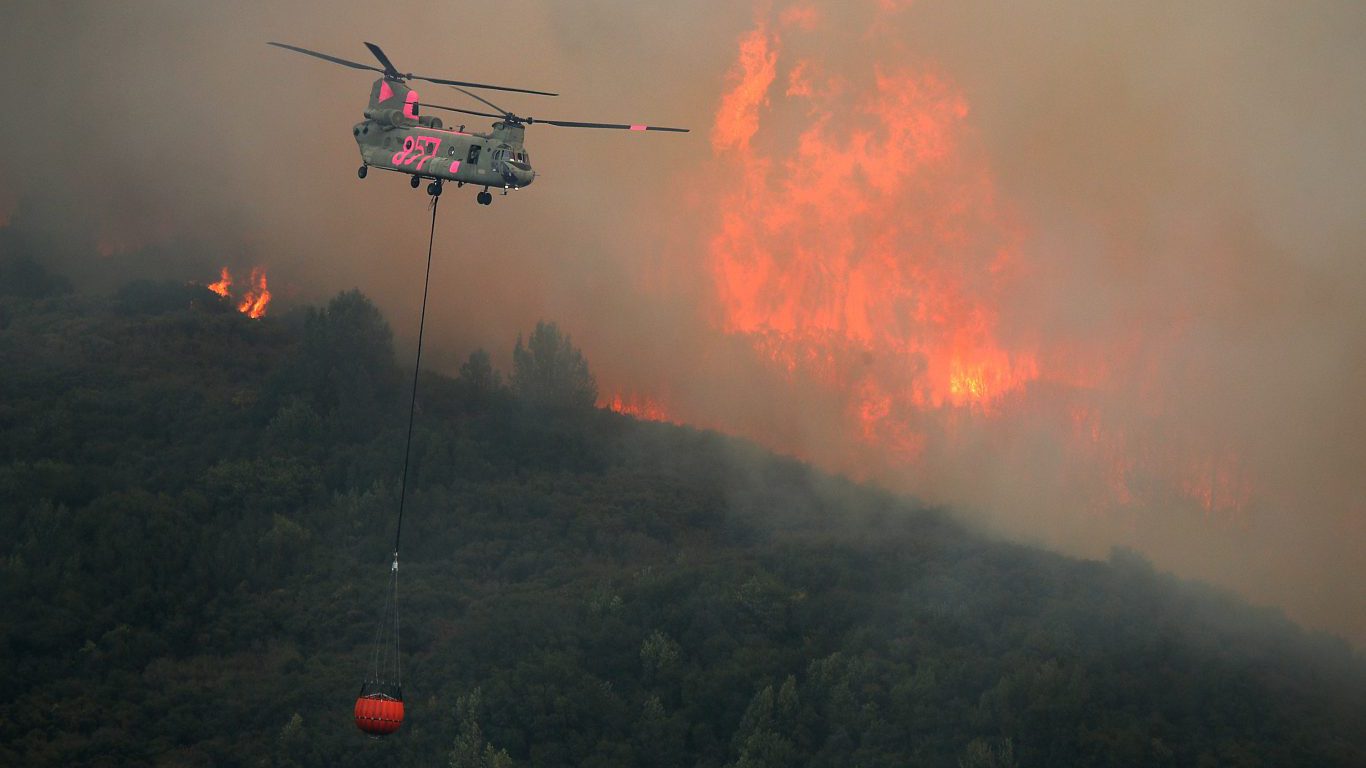
14. Mendocino Complex, Mendocino and neighboring counties, California
> Year: 2018
> Fatalities: 1
> Area burned: 459,102 acres
This fire complex, consisting of two adjacent fires affecting four California counties, is still burning, though it is mostly contained. It is the largest wildfire in California history.
The average American spends $17,274 on debit cards a year, and it’s a HUGE mistake. First, debit cards don’t have the same fraud protections as credit cards. Once your money is gone, it’s gone. But more importantly you can actually get something back from this spending every time you swipe.
Issuers are handing out wild bonuses right now. With some you can earn up to 5% back on every purchase. That’s like getting a 5% discount on everything you buy!
Our top pick is kind of hard to imagine. Not only does it pay up to 5% back, it also includes a $200 cash back reward in the first six months, a 0% intro APR, and…. $0 annual fee. It’s quite literally free money for any one that uses a card regularly. Click here to learn more!
Flywheel Publishing has partnered with CardRatings to provide coverage of credit card products. Flywheel Publishing and CardRatings may receive a commission from card issuers.
Thank you for reading! Have some feedback for us?
Contact the 24/7 Wall St. editorial team.